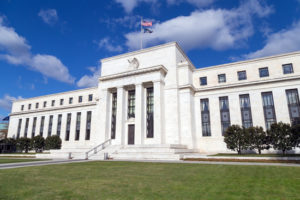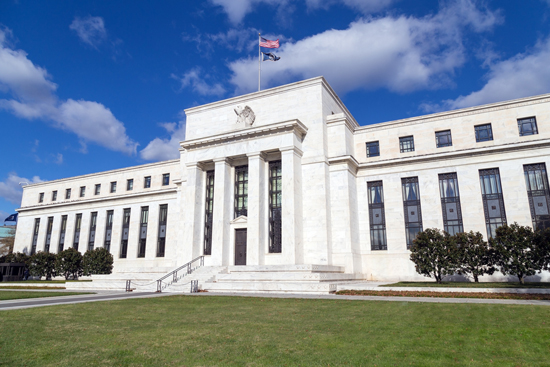Jerome Powell’s statement could come back to haunt him in the next crisis. By Peter Coy Source: Bloomberg.com President Trump’s nominee to ru

By Peter Coy
Source: Bloomberg.com
President Trump’s nominee to run the Federal Reserve, Jerome Powell, said on Nov. 28 that no U.S. banks are still “too big to fail”— so big that the government would have to rescue them in a crisis to prevent their failure from triggering a domino effect that would damage the entire financial system. It’s common for Fed officials to assert that there’s been progress in reducing too-big-to-fail risk, but Powell went a step farther.
Powell first skirted the question at his Senate Banking Committee confirmation hearing. When Senator John Kennedy, a Louisiana Republican, asked if big U.S. banks are too big to fail, he said, “We’ve made a great deal of progress on that.” When Kennedy pressed him for an answer, Powell said, “I would say no to that.”
Powell had better hope that his assertion doesn’t appear some day in a catalog of overoptimistic statements from the Federal Reserve. In May 2007, for instance, Fed Chairman Ben Bernanke said, “we do not expect significant spillovers from the subprime market to the rest of the economy or to the financial system.”
Whether any banks are too big to fail is hard to say when the good times are rolling, as they are now. Regulators have taken several important steps to make banks safer, including requiring them to have thicker cushions of capital so any losses would be absorbed by shareholders, not taxpayers. Still, there’s no question that many of the banks are bigger than ever.
The U.S. banking system is more highly concentrated now than it was when the global financial crisis struck in 2007-09. On Nov. 21, the Financial Stability Board, an organization of the world’s leading financial regulators and central bankers, released a list of 30 banks it deemed “global systemically important banks.” First, in a class by itself, was JPMorgan Chase & Co. The assets of JPMorgan Chase have grown 73 percent over the past decade.
If he’s confirmed, as appears likely after the gentle treatment he received at the confirmation hearing, Powell will become the first investment banker to head the nation’s central bank. His immediate predecessors have held doctorates in economics.
In a 2013 speech when he was a mere member of the Fed’s Board of Governors, Powell tried to make clear that his own experience had sensitized him to the systemic risk that a big failing institution can create. He recalled that when he was working for the Treasury Department in January 1991, Bank of New England Corp. failed.
“My Treasury colleagues and I joined representatives of the Federal Deposit Insurance Corporation (FDIC) and the Federal Reserve Board in a conference room on a Sunday morning,” Powell recalled in the speech. “We came to understand that either the FDIC would protect all of the bank’s depositors, without regard to deposit insurance limits, or there would likely be a run on all the money center banks the next morning—the first such run since 1933. We chose the first option, without dissent.”
While it may have been necessary, a drastic move such as that sets a bad precedent. Investors and depositors will blithely give their money to a risky bank if they know the government will always step in to protect them if something goes wrong. That creates moral hazard for the bank’s officers: They’re tempted to take even bigger risks in hopes of jetting back to profitability.
In the summer of 1991, Powell recalled in his 2013 speech, the Wall Street firm of Salomon Brothers almost failed—because of a scandal involving phony bids for government bonds. Because it wasn’t a deposit-taking bank, it wasn’t entitled to the same protections as Bank of New England. “But the firm’s failure would almost certainly have caused massive disruption in the markets,” Powell said in the speech. “To this day, I am grateful that we resolved that crisis with neither a bailout nor a failure.”
At his confirmation hearing, Powell told the senators that the size of a financial company is merely “one indicator of the riskiness of a firm and the possibility of it damaging the financial system.”
Powell also said, “I’m not going to characterize what we are doing as deregulation.” He characterized the objective as reviewing and rewriting rules established since the 2008 financial crisis to make them more efficient. He said he supports a rewrite of the Volcker Rule, which prevents banks from making market bets with depositors’ money. And he told Senator Elizabeth Warren, the Massachusetts Democrat, regarding regulations: “Honestly, senator, I think they are tough enough.”
To that, Warren responded, “This worries me.”

